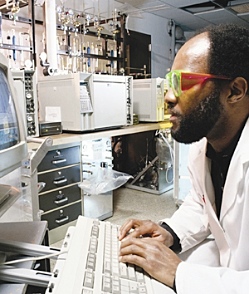 If you want to know just how out of touch the progressive left is about economics, you need look no further than two simple facts. First, the left is organizing and protesting to demands jobs. Second, U.S. companies are desperate to find workers who are worth hiring.
If you want to know just how out of touch the progressive left is about economics, you need look no further than two simple facts. First, the left is organizing and protesting to demands jobs. Second, U.S. companies are desperate to find workers who are worth hiring.
Do the protesters know this? Or have they bought into the delusion that they deserve to be handed jobs that let them do whatever they want to do, regardless of whether their skills provide value to anyone?
The problem is that American students are getting degrees, but they’re getting degrees in easier fields, so the choices they’re making mean they’re not competent for the jobs which are going unfilled in manufacturing. Someone who studied art history or theater is fairly useless to a company which needs an engineer or a skilled machine operator.
According to the Reuters story linked in the first paragraph:
“…American colleges are producing fewer math and science graduates as students favor social sciences, whose workload is perceived to be manageable, leading to a skills mismatch. Math, engineering, technology and computer science students accounted for about 11.1 percent of college graduates in 1980, according to government data. That share dropped to about 8.9 percent in 2009.”
If you’re about to get a degree, you might want to take a look at the 20 most useless degrees, in the economic sense. I studied journalism originally, which is the No. 1 most useless degree, and I happen to really like people who majored in some of the creative fields listed here. Honestly, I tend to find far more interesting about people with useless degrees than those with the useful ones, but that’s probably because I’m a bit weird. (OK, a lot weird.) So I’m not saying there’s anything wrong with studying obscure fields that don’t lead to high-paying jobs.
If you’re concerned with supporting yourself in the future, consider getting a job that’s likely to pay better. Time magazine looked at the best-paying majors and the worst-paying majors. Guess what? The best-paying ones are in subjects that require brains and a lot of hard work. Who would have thought? If you are willing to work and if you’re smart enough, become an engineer, because they dominate the list. You might not change the world, but you’ll be able to pay for your nice house in the suburbs.
 I was struck again last night while listening to an economics podcast by the fact that most of the people who change the world didn’t finish college, but that doesn’t mean that skipping college (or majoring in a fairly useless degree) is necessarily a smart bet. It’s not, if you care about odds. It just means that a small percentage of extraordinary people don’t fit with the mainstream system and are going to struggle and find their own ways to make change happen. It’s a bad bet to emulate them, because the percentages who do it are tiny, but the rewards are great for a few. If you want a fairly sure bet, go with the odds. You might have what I consider to be a boring life, but you won’t have to whine that nobody’s giving you a job.
I was struck again last night while listening to an economics podcast by the fact that most of the people who change the world didn’t finish college, but that doesn’t mean that skipping college (or majoring in a fairly useless degree) is necessarily a smart bet. It’s not, if you care about odds. It just means that a small percentage of extraordinary people don’t fit with the mainstream system and are going to struggle and find their own ways to make change happen. It’s a bad bet to emulate them, because the percentages who do it are tiny, but the rewards are great for a few. If you want a fairly sure bet, go with the odds. You might have what I consider to be a boring life, but you won’t have to whine that nobody’s giving you a job.
If you really have a passion for sculpture or music, though, I don’t object to you getting a degree in fine arts if you can afford it. However, I do object to you getting degrees such as these and then complaining that you have a right to a job. You are the one creating your future. Accept that and take control of your own life. It’s nobody else’s responsibility to give you a job.
 Want to start a ‘free city’? Check out the guidelines to see if you qualify
Want to start a ‘free city’? Check out the guidelines to see if you qualify THE McELROY ZOO: Meet Henry, the tiny kitten who was dumped with a broken leg and a big heart
THE McELROY ZOO: Meet Henry, the tiny kitten who was dumped with a broken leg and a big heart Could we solve tough problems if we didn’t know they’re difficult?
Could we solve tough problems if we didn’t know they’re difficult?